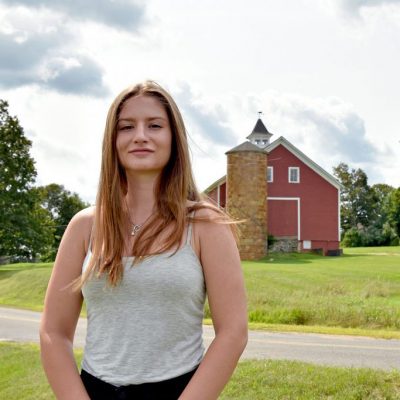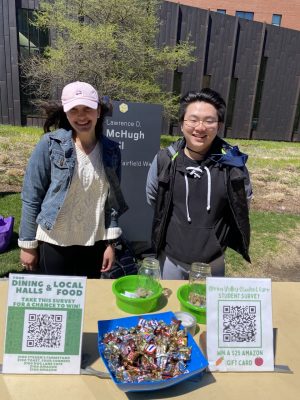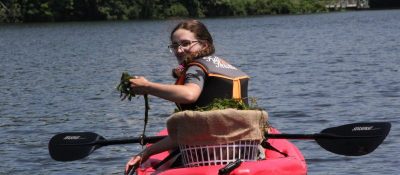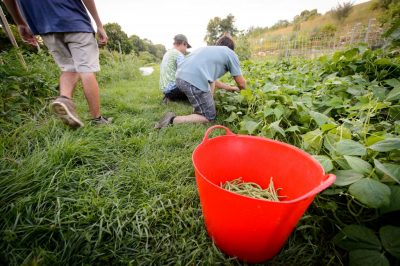Charles Towe was awarded a grant for $499,930 from the USDA National Institute of Food and Agriculture (NIFA) to study water quality and economics. The grant title is Valuing Rural Stewardship of Riverine Ecosystems: Transfer-Ready Water Quality and Land Cover Co-Benefits, Linked Rural and Urban Economies.
Water quality is the basis for many critical ecosystem services. Runoff of nutrients from the agricultural sector is now the main contributor to the current degradation ofUS waters. Policymakers have found it a challenge to encourage reductions by agriculture for at least two reasons. First, by statute, many agricultural operations are explicitly excluded from regulation. Second, when decision-makers move to set pollution targets it is a challenge to conduct benefit-cost analyses at both the regional and federal levels, exacerbating stasis over the setting of an ambient pollution target that promotes the general welfare.The policy community realizes that estimates of the public value for water quality are critical inputs for robust welfare analyses.Programs for water quality improvement span rural, suburban, and urban communities, and the benefits extend across these same dimensions. To date, much of the focus for water quality changes and benefit calculation has been placed either in urban areas. Given the dominance of non-point sources in our current water pollution portfolio and the fact that the acceptance of, and voluntary participation in, government programs to reduce this pollution is required for further success, a statistically valid and transferable estimate of rural water quality benefits is needed. These estimates are an important input to near-term spending priorities and in the longer term to aid in evaluating the potential for new, perhaps state-level, regulations, or market-based trading mechanisms (environmental markets) to meet water quality targets.Therefore, with the resulting absence of benefits information, it is hard to evaluate an investment in water quality in rural communities and current investment in such areas is likely inadequate. The value of water quality improvement is conditional on the target area of quality-improving management practices and the downstream areas that accrue benefits. Thus, a national or even region-wide assessment of the value of water quality changes with specificity to a local decision-scale is costly. The ecological, land-cover, and social context are critical to value measurement, and comprehensive information requires many valuation studies across a spectrum of locations.Overcoming these challenges requires valuation models that account for social, economic, and environmental context and tradeoffs and are constructed in a fashion that allows estimation of benefits even outside of the studied areas. In this study, we conduct targeted valuation surveys across these dimensions that allow for a benefit estimate of quality improvements along the entirety of the riverine system. These benefit calculations will fill a gap in knowledge and assist policymakers in targeting practice changes that produce the greatest social welfare improvement.




 The Connecticut Sea Grant Coastal and Marine Economics Graduate Fellowship Program
The Connecticut Sea Grant Coastal and Marine Economics Graduate Fellowship Program  UConn’s Department of Journalism and Department of Agricultural and Resource Economics (ARE) have worked together to develop a dual-degree program that allows students to simultaneously complete with a bachelor of arts in journalism and a bachelor of science in ARE. The dual degree was created in response to requests from journalism students interested in pursuing ARE as an additional area of study. The new program allows students to gain experience in applying journalistic perspective to economics, the environment, and related policy.
UConn’s Department of Journalism and Department of Agricultural and Resource Economics (ARE) have worked together to develop a dual-degree program that allows students to simultaneously complete with a bachelor of arts in journalism and a bachelor of science in ARE. The dual degree was created in response to requests from journalism students interested in pursuing ARE as an additional area of study. The new program allows students to gain experience in applying journalistic perspective to economics, the environment, and related policy.